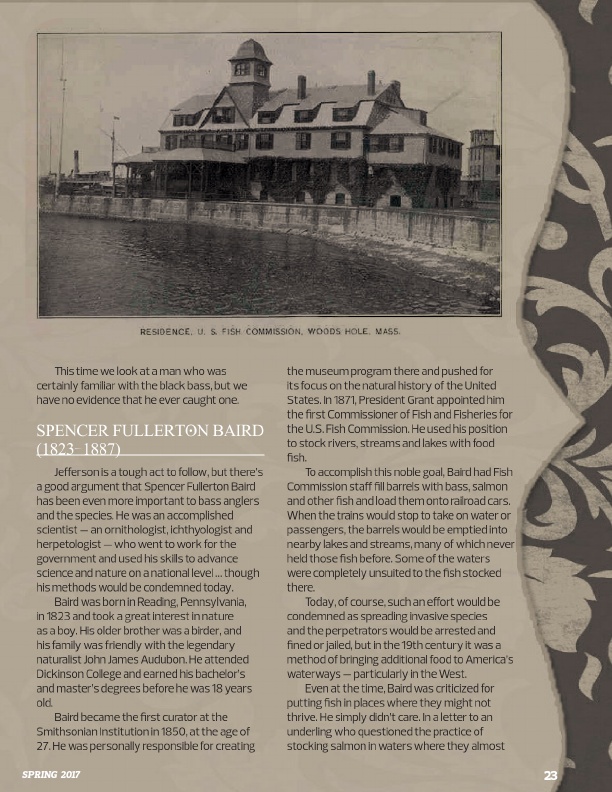
SPRING 2017
This time we look at a man who was certainly familiar with the black bass, but we have no evidence that he ever caught one.
SPENCER FULLERTON BAIRD (1823-1887)
Jefferson is a tough act to follow, but there’s a good argument that Spencer Fullerton Baird has been even more important to bass anglers and the species. He was an accomplished scientist — an ornithologist, ichthyologist and herpetologist — who went to work for the government and used his skills to advance science and nature on a national level … though his methods would be condemned today.
Baird was born in Reading, Pennsylvania, in 1823 and took a great interest in nature as a boy. His older brother was a birder, and his family was friendly with the legendary naturalist John James Audubon. He attended Dickinson College and earned his bachelor’s and master’s degrees before he was 18 years old.
Baird became the first curator at the Smithsonian Institution in 1850, at the age of 27. He was personally responsible for creating
the museum program there and pushed for its focus on the natural history of the United States. In 1871, President Grant appointed him the first Commissioner of Fish and Fisheries for the U.S. Fish Commission. He used his position to stock rivers, streams and lakes with food fish.
To accomplish this noble goal, Baird had Fish Commission staff fill barrels with bass, salmon and other fish and load them onto railroad cars. When the trains would stop to take on water or passengers, the barrels would be emptied into nearby lakes and streams, many of which never held those fish before. Some of the waters were completely unsuited to the fish stocked there.
Today, of course, such an effort would be condemned as spreading invasive species and the perpetrators would be arrested and fined or jailed, but in the 19th century it was a method of bringing additional food to America’s waterways — particularly in the West.
Even at the time, Baird was criticized for putting fish in places where they might not thrive. He simply didn’t care. In a letter to an underling who questioned the practice of stocking salmon in waters where they almost
23